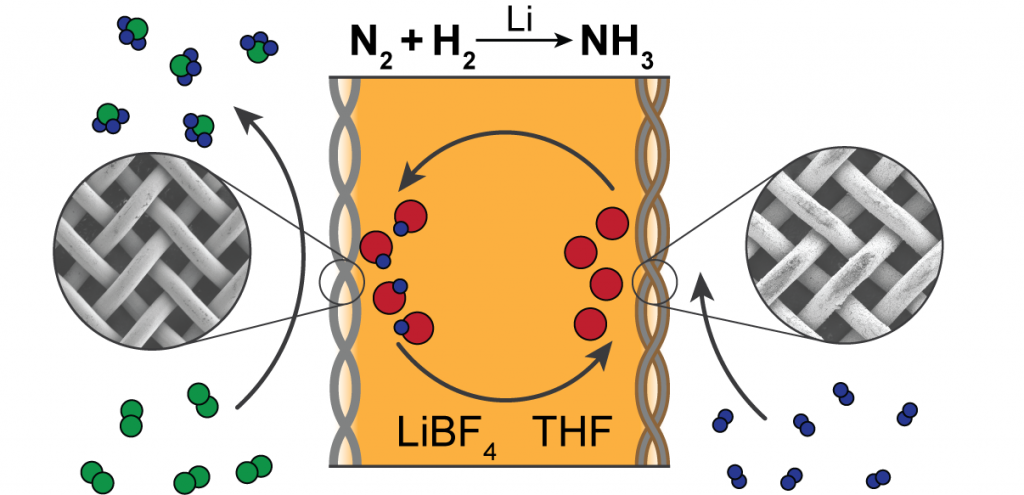Karthish Manthiram
Professor of Chemistry and Chemical Engineering
California Institute of Technology, U.S.
Date: April 20, 2022
Time: 1000h ET
Sponsors: Hiden Analytical, Royal Society of Chemistry, Cell Press
Chemical synthesis is responsible for significant emissions of carbon dioxide worldwide. These emissions arise not only due to the energy requirements of chemical synthesis, but since hydrocarbon feedstocks can be overoxidized or used as hydrogen sources. Using renewable electricity to drive chemical synthesis may provide a route to overcoming these challenges, enabling synthetic routes which operate at benign conditions and utilize sustainable inputs. We are developing an electrosynthetic toolkit in which distributed feedstocks, including carbon dioxide, dinitrogen, water, and renewable electricity can be converted into diverse fuels, chemicals, and materials.
In this presentation, we first share recent advances made in our laboratory on nitrogen fixation to synthesize ammonia at ambient conditions. Specifically, our lab has investigated a continuous lithium-mediated approach to ammonia synthesis and understood the reaction network that controls selectivity. We developed non-aqueous gas-diffusion electrodes which lead to high rates of ammonia synthesis at ambient conditions. Then, we discuss how water can be used as a sustainable oxygen-atom source and how carbon dioxide can be used to achieve carbon chain extension. These findings are discussed in the context of a broader range of electrosynthetic transformations which could lead to local and on-demand production of critical chemicals and materials.
Benefits of attending the webinar
Learn about:
- What it will take to decarbonize the manufacturing of the physical world;
- How voltage can be used as a driving force for chemical reactions traditionally driven with temperature and pressure;
- How chemicals like ammonia and epoxides can be made using air and water.
Karthish Manthiram
Karthish Manthiram is a Professor of Chemistry and Chemical Engineering at the California Institute of Technology (Caltech). The Manthiram Lab focuses on the molecular engineering of electrocatalysts for the synthesis of organic molecules, including pharmaceuticals, fuels, and commodity chemicals, using renewable feedstocks. Professor Manthiram received his BS in Chemical Engineering from Stanford University in 2010 and his PhD in Chemical Engineering from the University of California, Berkeley in 2015. After a one-year postdoc at Caltech, he joined the Massachusetts Institute of Technology (MIT) as Assistant Professor in 2017. In 2021, he joined Caltech as Full Professor of Chemistry and Chemical Engineering. Prof. Manthiram ’s research has been recognized with awards including the DOE Early Career Award; NSF CAREER Award; Sloan Research Fellowship; 3M Non-Tenured Faculty Award; American Institute of Chemical Engineers 35 Under 35; American Chemical Society PRF New Investigator Award; ECS San Francisco Section Daniel Cubicciotti Student Award; and Forbes 30 Under 30 in Science. His teaching has been recognized with the Camille Dreyfus Teacher-Scholar Award; C. Michael Mohr Outstanding Undergraduate Teaching Award; MIT Chemical Engineering Outstanding Graduate Teaching Award; and MIT Teaching with Digital Technology Award. He serves on the Early Career Advisory Board for ACS Catalysis and on the Advisory Board for Trends in Chemistry.
Learn more about upcoming ECS Webinars and review our previous webinar recordings.
We thank our webinar sponsors who make these complimentary programs possible.
 |
 |
 |
Interested in presenting in the ECS Webinar Series? Email your presentation title and abstract to education@electrochem.org for consideration.



